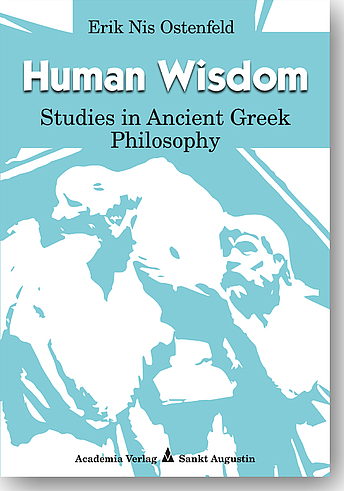Ostenfeld
Human Wisdom
ISBN 978-3-89665-694-0
This book offers inter alia a systematic investigation of the actual argumentative strategy of Socratic conversation and explorations of Socratic and Platonic morality including an examination of eudaimonia and the mental conception of health in the Republic as self-control, with a view to the relation of individual health/happiness to social order.
The essays cover a period from 1968 to 2012. Some of them are now published for the first time.
Self-motion in the later dialogues involves tripartition and tripartition in turn involves embodiment. The Philebus psychology too anticipates Aristotle. The Forms of the Timaeus are patterns, but the two-world picture is abandoned: there is one world constituted by Forms and Place. The Epinomis is arguably genuine. More generally, denying that Plato develops, e.g. exegetically and psychologically, is absurd. There are too many contradictions in the Corpus. The dialogues are artistic wholes and the author's message must be interpreted accordingly: hence in a sense every character is Plato's mouthpiece. Aristotle's idea of the human good or quality of life as optimal mental activity according to the special human capabilities is the root of the modern self-actualization projects. Panaetius (free reason) and Posidonius (science) mark the end of the older Stoa's hard-core materialism and the beginning of a new more 'modern' era.


